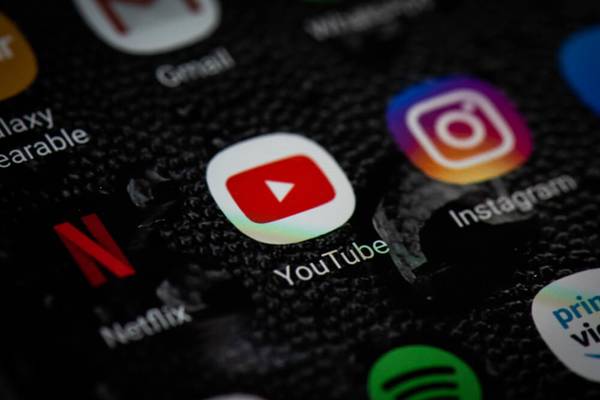Carla Marshall is the Head of Content Marketing at vidIQ. She has 10+ years of experience in video marketing, social media management, content marketing, DRM, and SEO. She was previously Editor in Chief at ReelSEO.com, and as a journalist and video marketer, she's covered news stories, creator journeys, and digital-first publishing initiatives across all the major online video platforms. She is YouTube Certified and a judge for the Shorty Awards, as well as the UK, US, Canadian, Global, and EU Search Awards.
How to Monetize Your YouTube Channel - 2020 Beginner's Guide
This post is all about how you can monetize your content on YouTube to start generating revenie. The are four golden rules to making money on YouTube, and they are:
- You need to have 1,000 subscribers on your YouTube channel
- Your videos have generated 4,000 Watch Time hours over the last 12 months
- You comply with all YouTube's policies and guidelines
- You have an AdSense account set up
#1 The YouTube Partner Program Requirements
Commonly known as the YouTube Partner Program, or YPP for short, you'll need to hit all four requirements before your channel will be accepted.
Let's start with the 1,000 subscribers. This one is pretty straightforward, it doesn't matter how long it takes you to get to 1,000 subscribers, once you hit that milestone, you've reached that requirement.
As well as 1,000 subscribers, you also need 4,000 hours of Watch Time on your videos over the last 12 months. There is some confusion with this one, so let me try and clarify that. First of all, this is not about how much video content you, the YouTube creator watch. This is all about how much video content is watched on your channel from people all across the world. It’s all those hours of video that people have watched on your channel in the last 12 months (from any given date). You could well have well 4,000 hours of Watch Time over the lifetime of your channel, but it's only the last 12 months that count for YouTube Partner Program requirements.
Another couple of things to tell you about Watch Time. Live streams do count towards that total. Unlisted videos also count towards that total. But if you delete any videos, that Watch Time will be removed from your channel Watch Time hours. And one more final thing, if you are already in the YouTube Partner Program, and if your channel falls below 4,000 hours of Watch Time, YouTube won't automatically remove you from the partner program, but they can do it at their discretion. If you want a much more detailed video on the topic of 4,000 hours specifically, check out this video:
If you want to check the progress of above requirements, you can do so by clicking on your logo in the top right-hand corner of most YouTube pages, and then clicking on YouTube Studio Beta. You can view all of your analytics here, but to quickly check progress on monetization, hover your mouse over "Other features", and then click on "Status and Features". On this screen, you should see a monetization box, and if you click "Learn more", it will tell you exactly where you currently stand with subscribers and Watch Time hours.
But if all of that sounds like too much hard work, then we've got a free tool that will do all of this much quicker and more efficiently. If you download and install the vidIQ software on pretty much every YouTube screen, you will see a collection of real-time stats all about your channel. It will show you your channel's views per hour, views over the last 48 hours, and your subscriber count. But the really cool thing is that it will track your progress to 4,000 hours of Watch Time too! Once you hit 4,000 hours, that number will turn green to show you you've reached that monetization requirement.
#2 Following YouTube Rules for Monetization
Next on the list is the rule book. If you want to monetize your content, you need to make sure you stick to it, as YouTube state:
When you apply for the YouTube Partner Program, you'll go through a standard review process to see whether your channel meets YouTube's policy and guidelines. Only channels that meet them will be accepted into the program.
YouTube also constantly check channels in the program to see whether they continue to meet YouTube's policies and guidelines. These policies and guidelines that are very comprehensive, given all of the growing pains YouTube have had of finding the right balance between creators, viewers, and advertisers. I highly recommend familiarizing yourself with these policies and guidelines if you want to monetize your content in the future.
However, if you are in a TLDR mood, to summarize, apply common sense. If you think a video might be inappropriate, chances are it is, and you make such content at your own risk.
#3 Copyright and Monetization Policies on YouTube
Among YouTube's policies and guidelines is the huge topic of copyrighted material. Essentially, if you use other people's work, then you could be using copyrighted material without their permission, and YouTube does not want you to do that. It will almost certainly get you demonetized or prevent you from entering the YouTube Partner Program. Let's look at this in a little more detail.
For most of you, this is the most important monetization policy. You have to make sure that you're adding value to any third party content you monetize, and that your content has significant original commentary, educational value, or editorialized statement. And let's be clear, that still might not be enough. This does not give you a license to use other people's content in your videos all the time, because if you do, YouTube may use this as an argument not to monetize your content.
YouTube confirms that if all or most of your channel is dedicated to reused content, and you're not transforming the original work by adding your own unique value, then your channel is not eligible for the YouTube Partner Program. The spirit of this policy is to make sure that YouTube are incentivizing unique and original content into the YouTube Partner Program, and that YouTube are protecting and rewarding the creators who work hard on original content.
Now, some may see YouTube's spirit of a policy as an excuse to demonetize channels they don't want in the monetization program, but let's have a look at it from this point of view. You spent days, hours creating a magnificent piece of content, and it goes viral on YouTube. And then a dozen random video creators steal that content, upload it, generate hundreds of thousands of views, and end up profiting handsomely from it. How would you feel if that happened? That's what YouTube is trying to protect - original content from video creators.
Admittedly, reused, duplicate content, and copyright content is a broad gray area on YouTube, and they don't always get it right. And you may look at some channels on YouTube and see that they're clearly flaunting these rules. Well, you don't know what their individual circumstances are, they may have permission to use that content, or they may get caught in the future, and you don't want to follow the examples of channels that are doing this. It's not a road to success.
Ultimately YouTube is the gatekeeper. They hold all of the keys. You are on rented ground, and if you flaunt these rules, and break them, then don't be surprised when YouTube comes after you.
#4 Linking a Google Adsense Account with a YouTube Channel
If you are going to earn money from your videos, YouTube needs a way to pay you, and at least to begin with, this will be done through an AdSense account. A few things you need to know about this, if you already have an AdSense account, you can use that. You can connect multiple channels to one AdSense account, and if you haven't got an AdSense account, you can set one up during the YouTube Partner Program application process.
#5 Applying to the YouTube Partner Program
Let's remind ourselves of those requirements one more time: You need:
- 1,000 subscribers on your YouTube channel
- 4,000 Watch Time hours on your videos over the last 12 months
- To comply with all YouTube's policies and guidelines
- Have an AdSense account set up
When you've applied YouTube Partner Program, it may take up to a month for the platform to make a decision. That’s because actual humans will review your channel so it’s a manual process. Some channels have been approved in days, so it could be quicker. However, if it does take longer than a month, then your channel will usually be placed in further review. When this happens, unfortunately, the wait times can get very long. Three, six, possibly even 12 months. In some unfortunate cases, YouTube never seems to come to a decision, leaving the creator in monetization limbo.
We appreciate that this can be a very frustrating position to find yourself in as a video creator, as many of you have commented about this on our videos here at vidIQ. Unfortunately, we ourselves cannot help push the process forward for you, so what we recommend you do is to talk to TeamYouTube on Twitter, make sure that everybody knows that you have an issue with your monetization decision.
YouTube say that this will never speed up the process, but at least having some decision is something you should deserve as a video creator.
#6 Being Rejected from the YouTube Partner Program: Next Steps
Now let's say that you've applied for the YouTube Partner Program, but you've been rejected. What can you do?
When you are rejected from the YouTube Partner Program, YouTube will give you a general reason why. Unfortunately, they won't tell you specifically what video or content is causing the issue, so you may be left blindly adjusting your channel. However, the good news is you can reapply for the program in 30 days' time.
Again, this is where you will have to use your common sense. If you think there are videos that are walking the community guideline and policies tightrope, then they most likely are and you need to adjust them. If there are videos that have copyright content on them then those are probably causing a problem with YouTube as well, so you will need to delete them.
Creators have asked when they apply for the partner program, will having a community guideline strike or a copyright strike against my channel prevent me from getting into the program? The answer is probably no, it definitely won't prevent you, but it is going to have an impact.
There is a dedicated support page with advice on what you should do if you are rejected from the YouTube Partner Program, and you’ll find it here.
Once you are in the Partner Program, and you want to take your monetization a step further by earning money from Super Chats, membership, and merchandise, take a look at this video on the subject:
Want To Get More Views on YouTube?
If you want to take your YouTube channel to the next level and get more views on YouTube then make sure to download vidIQ. Join over 1 million other users and use vidIQ to help you research YouTube, analyze videos, audit your own channel, and take actionable steps click here to install now!





